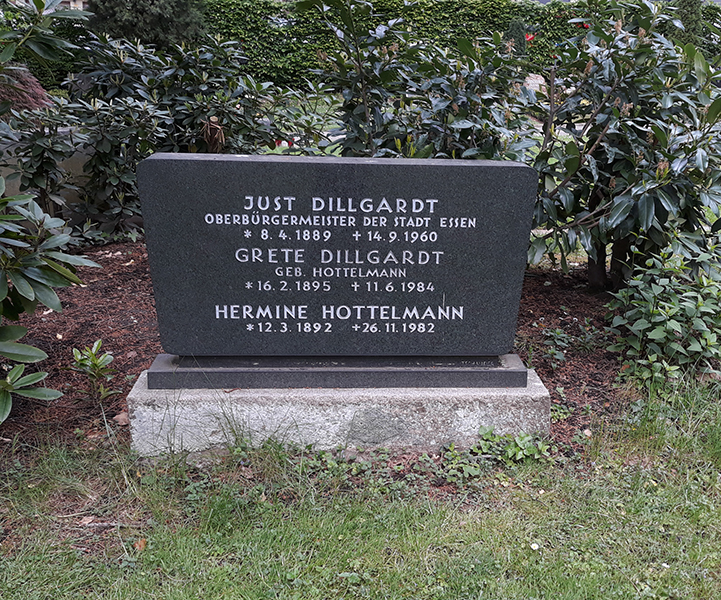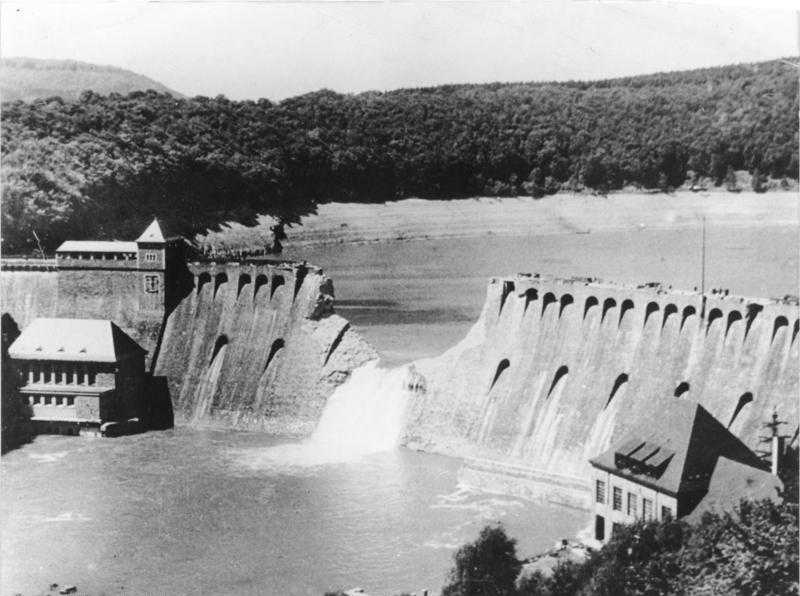Dillgardt, August (Just)
- Date of birth:
- April 8th, 1889 ( Elversberg, German Empire)
- Date of death:
- September 14th, 1960 (Essen, Germany)
- Service number:
- 85.244 (NSDAP) / 35.615 (SS)
- Nationality:
- German
Biography
Dillgardt, the son of a miner, attended the Realgymnasium in Weimar and began studying electrical engineering but left his studies after being drafted into the U-boat brigade during World War I. In 1920, he moved to Essen, working for various industrial firms. His career surged after the National Socialists rose to power in 1933. That year, he became acting director of the Association of Settlements in the Ruhr Coal District and joined the Essen City Council as a technical councillor. By December 1934, he was appointed Mayor of Duisburg, officially taking office in January 1935.
In 1937, Dillgardt succeeded Theodor Reismann-Grone as acting Mayor of Essen. He infamously described his role as removing or exterminating those deemed "racially inferior." He remained mayor until Essen's surrender in April 1945, when he was arrested by the US 9th Army. Post-war, he served 28 months in prison and faced charges of crimes against humanity, though proceedings were dropped in 1950. An appeal led to his acquittal in 1953.
Dillgardt held several influential positions: district chairman of the Reichsverein für Elektriciteitsvoorziening (1934), third chairman of RWE's supervisory board (1938), and board member of the Association of German Engineers (1938–1940). Appointed Plenipotentiary General of the German Energy Industry in 1939 by Hermann Göring, he resigned in 1941. He also oversaw the exploitation of energy industries in occupied Poland and Norway.
Dillgardt made crucial adjustments to the air defense of the Ruhr dams. During Operation Chastise several bombers were shot down.
20 April 1939: SS-Oberführer
Do you have more information about this person? Inform us!
- Period:
- First World War (1914-1918)
- Period:
- First World War (1914-1918)
- Period:
- Second World War (1939-1945)
Sources
- Photo 1: Harvey Kneeslapper (CC Attribution Share Alike 4.0)
- - Schröder, E., Essener Persönlichkeiten – Biographische Aufsätze zur Essener Verwaltungs- und Kulturgeschichte (1986)








